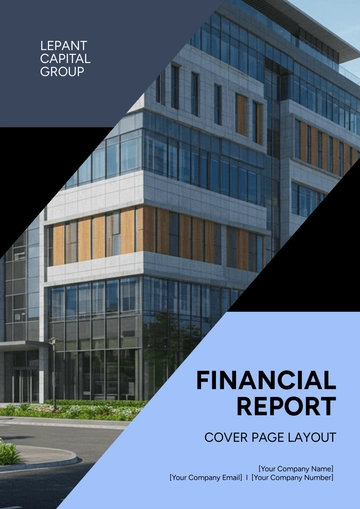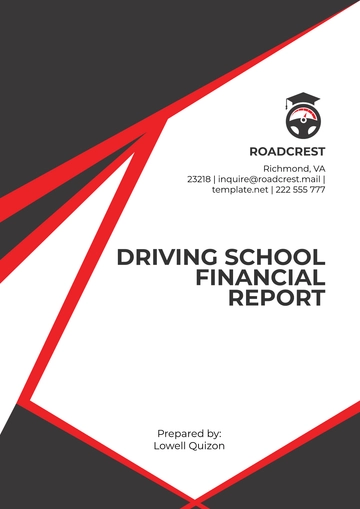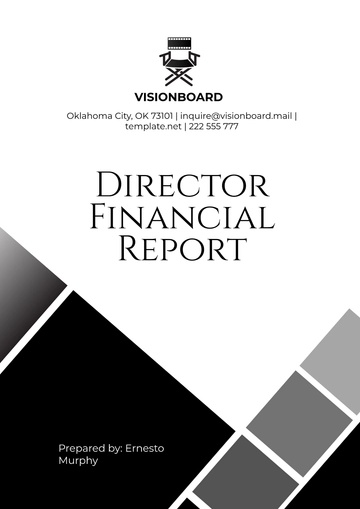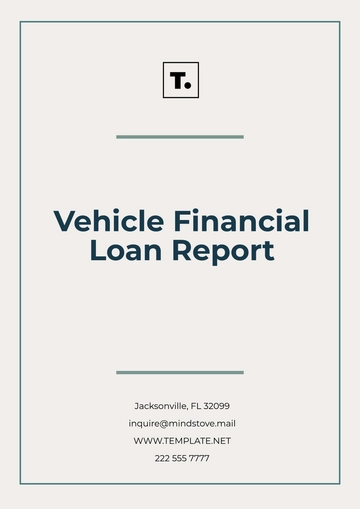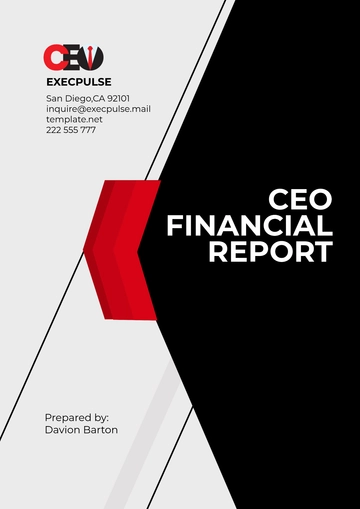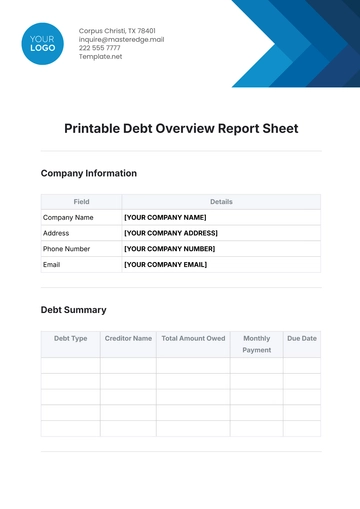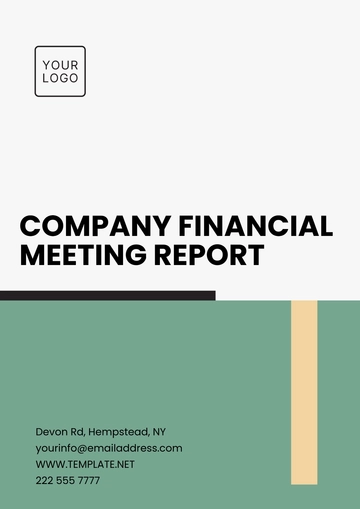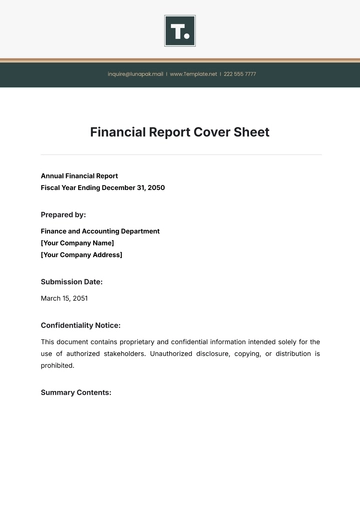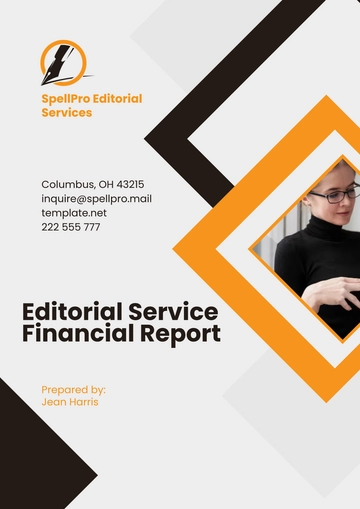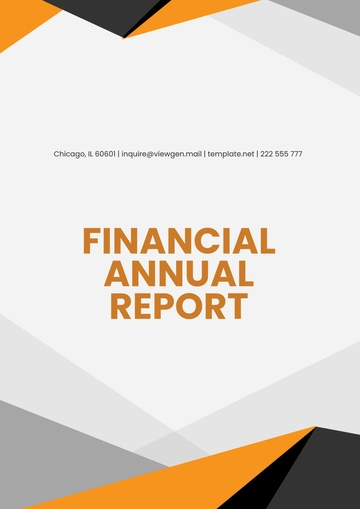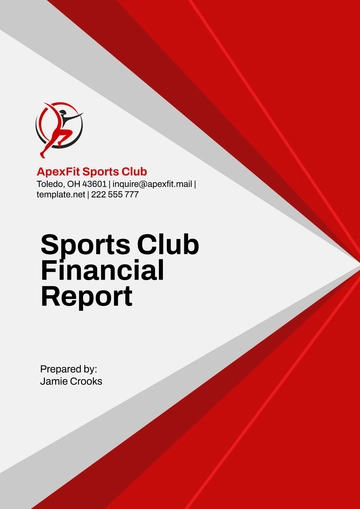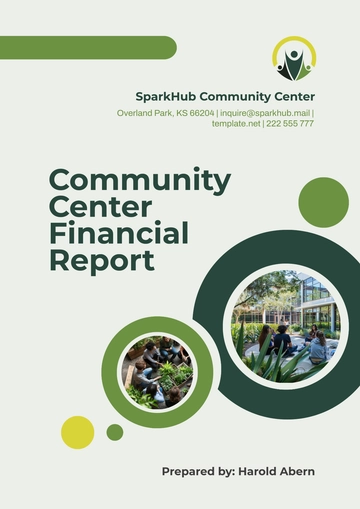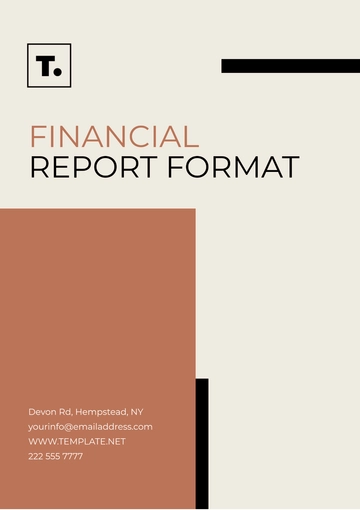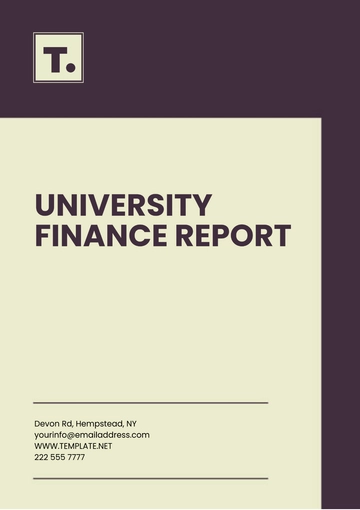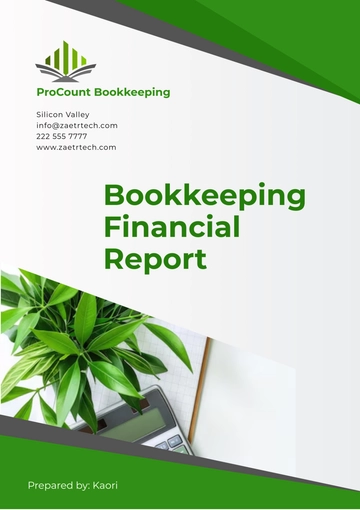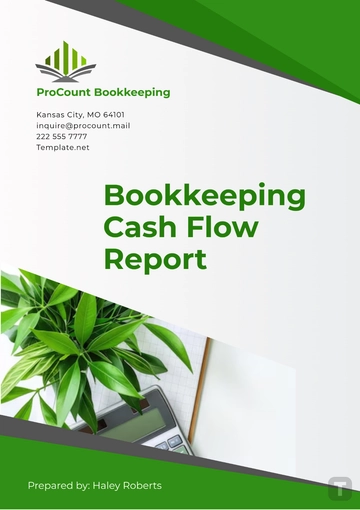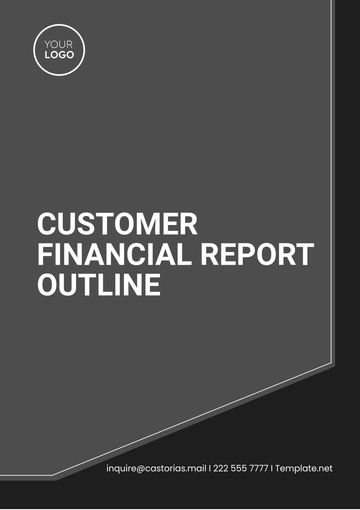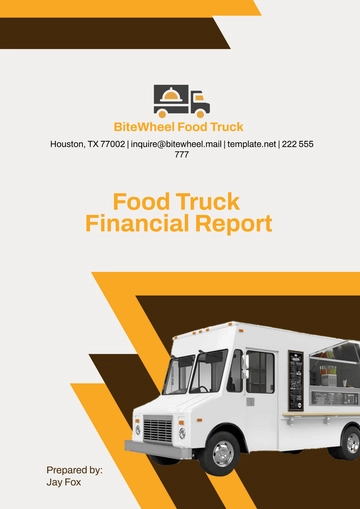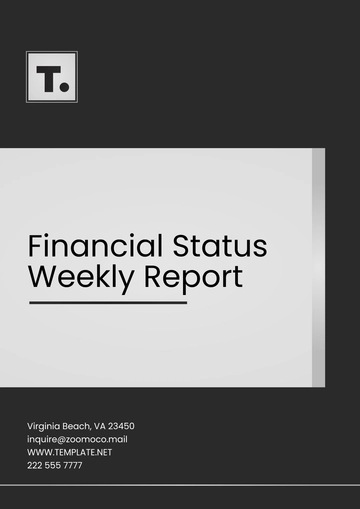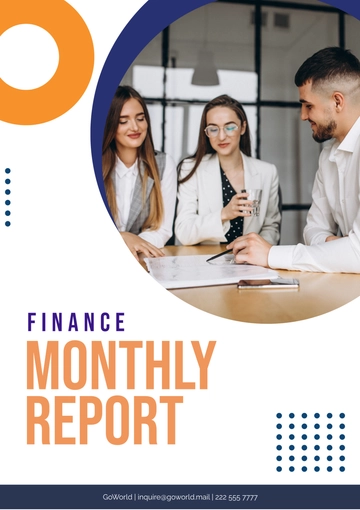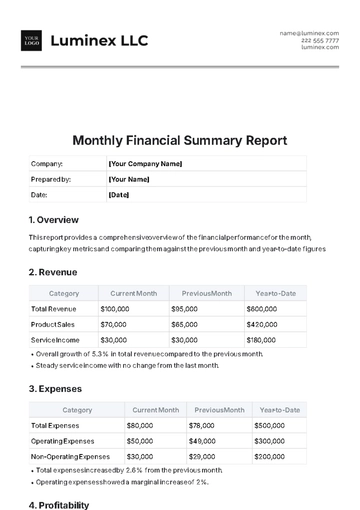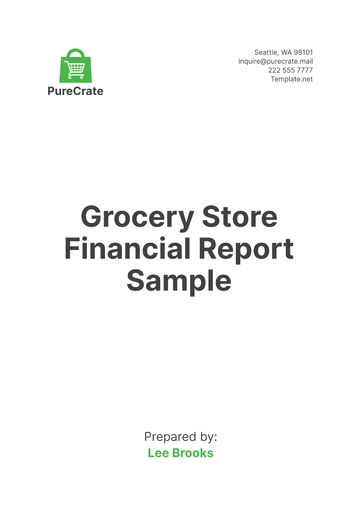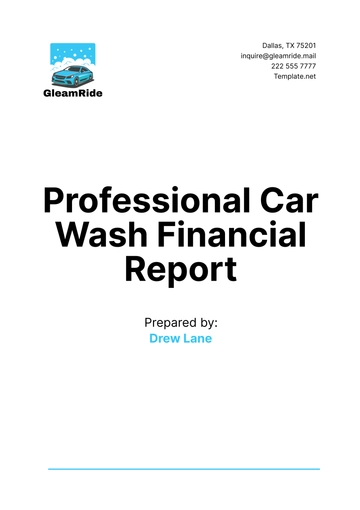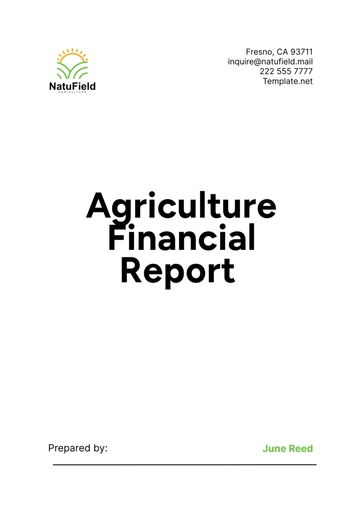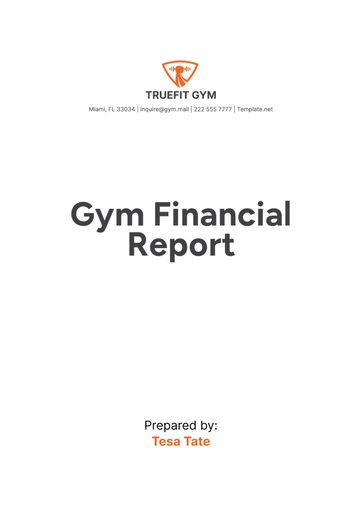Free Community Center Financial Report
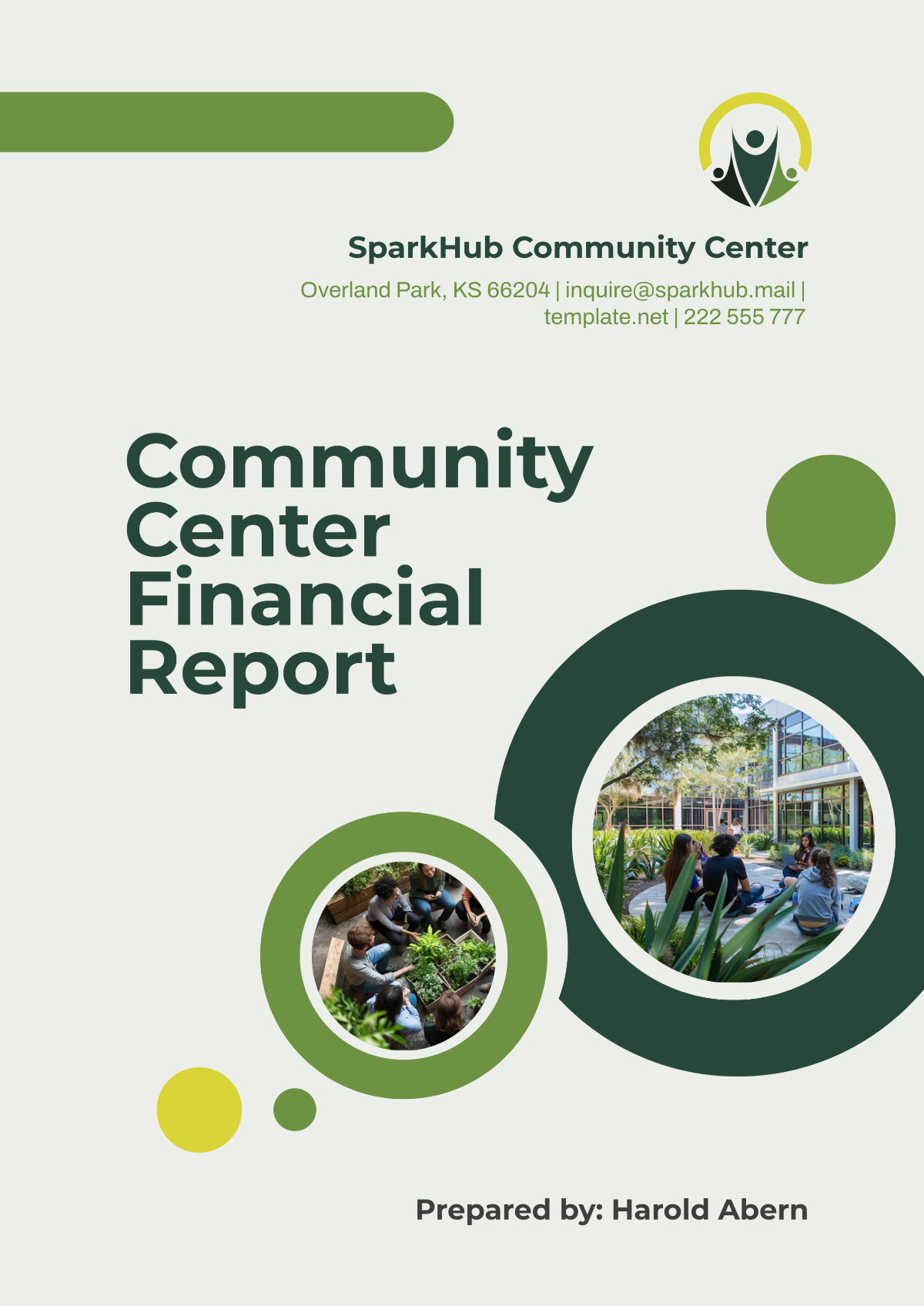
I. Executive Summary
A. Overview of the Community Center’s Financial Performance
In 2050, the Community Center saw significant financial growth, with total revenue reaching $750,000, reflecting a 10% increase over the previous year. This growth was largely driven by higher membership enrollments and successful program offerings, which attracted more participants and donors.
B. Key Financial Highlights
The center achieved a net income of $70,000, a 133% increase from the previous year’s $30,000. While expenses rose slightly due to increased programmatic activities and maintenance costs, the revenue boost ensured a positive overall financial outcome.
C. Brief Analysis of Financial Trends and Recommendations
Revenue from membership and program fees continues to be the primary source of income, indicating a healthy demand for community activities. Moving forward, the center should explore further diversification of revenue streams, including additional fundraising campaigns and long-term sponsorship agreements, to maintain financial stability.
II. Income Statement
In 2050, the Community Center's revenue increased by 10%, with membership and program fees driving the growth. Total expenses also rose by 5%, largely due to higher operational and personnel costs, but the center still maintained a healthy profit.
Category | Amount ($) | 2049 ($) | % Change |
|---|---|---|---|
Total Revenue | 750,000 | 680,000 | 10% |
Membership Fees | 250,000 | 220,000 | 13.64% |
Program Fees | 300,000 | 270,000 | 11.11% |
Donations and Fundraising | 150,000 | 140,000 | 7.14% |
Total Expenses | 680,000 | 650,000 | 5% |
III. Balance Sheet
The balance sheet shows that the center’s total assets have grown by 6.25%, with a strong increase in cash reserves. Liabilities have also risen, largely due to an increase in long-term debt to fund facility upgrades.
Assets | Amount ($) | 2049 ($) | % Change |
|---|---|---|---|
Current Assets | 350,000 | 320,000 | 9.38% |
Cash and Cash Equivalents | 150,000 | 120,000 | 25% |
Fixed Assets | 500,000 | 480,000 | 4.17% |
Total Assets | 850,000 | 800,000 | 6.25% |
Liabilities | Amount ($) | 2049 ($) | % Change |
|---|---|---|---|
Current Liabilities | 80,000 | 75,000 | 6.67% |
Long-Term Liabilities | 200,000 | 180,000 | 11.11% |
Total Liabilities | 280,000 | 255,000 | 9.8% |
IV. Cash Flow Statement
The center’s cash flow shows an increase in both cash inflows and outflows, with operational income growing significantly by 11%. This positive cash flow indicates good liquidity and the ability to fund operations and investments without relying heavily on external financing.
Category | Amount ($) | 2049 ($) | % Change |
|---|---|---|---|
Cash Inflows | 740,000 | 700,000 | 5.71% |
Cash from Operations | 500,000 | 450,000 | 11.11% |
Donations | 150,000 | 140,000 | 7.14% |
Cash Outflows | 660,000 | 620,000 | 6.45% |
Operating Expenses | 550,000 | 520,000 | 5.77% |
V. Budget vs. Actual Performance
The center’s total revenue exceeded budget expectations by 3.45%, with membership and program fees performing better than anticipated. Expenses also slightly exceeded the budget, but the overall financial performance was favorable, leading to a positive variance in net income.
Category | Actual ($) | Budgeted ($) | Variance ($) | Variance (%) |
|---|---|---|---|---|
Total Revenue | 750,000 | 725,000 | +25,000 | +3.45% |
Membership Fees | 250,000 | 240,000 | +10,000 | +4.17% |
Program Fees | 300,000 | 290,000 | +10,000 | +3.45% |
Total Expenses | 680,000 | 670,000 | +10,000 | +1.49% |
VI. Financial Ratios and Analysis
The Community Center's profit margin of 9.33% is well above the industry benchmark, indicating effective cost management and revenue generation. Additionally, the center’s high current and quick ratios, well above industry standards, demonstrate strong liquidity and a low risk of financial distress in the short term.
Ratio | 2050 | 2049 | Industry Benchmark |
|---|---|---|---|
Profit Margin | 9.33% | 4.41% | 5-10% |
Current Ratio | 4.38 | 4.27 | 1.5 |
Quick Ratio | 4.05 | 3.95 | 1.0 |
Return on Assets (ROA) | 8.24% | 5.00% | 5-8% |
Debt-to-Equity Ratio | 0.49 | 0.47 | 0.5 |
VII. Fundraising and Grant Activity
A. Fundraising Campaigns
In 2050, the Community Center successfully conducted several fundraising campaigns, raising a total of $150,000. The highlight of the year was the Annual Gala, which brought in over $50,000 in contributions, surpassing the target by 25%. The center also launched a highly effective online giving campaign, supported by local businesses and community members, which generated $40,000. Additionally, a walkathon event organized in the fall brought together hundreds of participants and raised $30,000, which will support youth development programs.
B. Grants Received
The Community Center applied for and secured several key grants during the year. A notable $50,000 award from the Local Arts Grant will help fund art and cultural programs for the community, while a $25,000 grant from the City Community Fund will contribute to building improvements. Additionally, the center received $15,000 from the National Health Grant to expand wellness programs, including fitness classes and mental health services. These funds are essential for sustaining and growing the center’s services to meet the evolving needs of the community.
C. Fund Utilization
The funds raised through fundraising and grants have been strategically allocated to critical areas of the Community Center’s operations. A large portion, $80,000, was used to expand community outreach programs, increasing accessibility for underserved populations. Another $30,000 was dedicated to purchasing new equipment and upgrading the facility, enhancing the quality of services. Furthermore, $40,000 was invested in staff training, which will help improve program delivery and foster a more skilled workforce for the future.
VIII. Conclusion and Recommendations
The Community Center’s financial performance in 2050 has been exceptionally strong, demonstrating resilience and growth in a challenging economic climate. With a 10% increase in revenue and a 133% boost in net income, the center is well-positioned for continued success. However, there are areas for improvement, particularly in controlling administrative costs, which saw a decrease in efficiency last year. To ensure long-term sustainability, it is recommended that the center explore more diverse revenue streams, such as increasing corporate sponsorships and expanding grant applications to new funding sources.
Looking ahead, the Community Center should prioritize expanding its outreach programs to serve a broader range of community members, particularly those facing economic hardships. Additionally, investing in digital tools for program management and communication will help streamline operations and improve engagement with members and donors. By leveraging the strong financial foundation built in 2050, the center can continue to thrive and fulfill its mission to enhance community well-being.
- 100% Customizable, free editor
- Access 1 Million+ Templates, photo’s & graphics
- Download or share as a template
- Click and replace photos, graphics, text, backgrounds
- Resize, crop, AI write & more
- Access advanced editor
Manage your Community Center’s finances effortlessly with the customizable Community Center Financial Report Template from Template.net. This editable template allows you to tailor the structure to your specific needs, ensuring accurate financial reporting. Leverage the powerful AI Editor Tool to make quick adjustments and streamline your financial presentation, saving you time and enhancing clarity.
You may also like
- Sales Report
- Daily Report
- Project Report
- Business Report
- Weekly Report
- Incident Report
- Annual Report
- Report Layout
- Report Design
- Progress Report
- Marketing Report
- Company Report
- Monthly Report
- Audit Report
- Status Report
- School Report
- Reports Hr
- Management Report
- Project Status Report
- Handover Report
- Health And Safety Report
- Restaurant Report
- Construction Report
- Research Report
- Evaluation Report
- Investigation Report
- Employee Report
- Advertising Report
- Weekly Status Report
- Project Management Report
- Finance Report
- Service Report
- Technical Report
- Meeting Report
- Quarterly Report
- Inspection Report
- Medical Report
- Test Report
- Summary Report
- Inventory Report
- Valuation Report
- Operations Report
- Payroll Report
- Training Report
- Job Report
- Case Report
- Performance Report
- Board Report
- Internal Audit Report
- Student Report
- Monthly Management Report
- Small Business Report
- Accident Report
- Call Center Report
- Activity Report
- IT and Software Report
- Internship Report
- Visit Report
- Product Report
- Book Report
- Property Report
- Recruitment Report
- University Report
- Event Report
- SEO Report
- Conference Report
- Narrative Report
- Nursing Home Report
- Preschool Report
- Call Report
- Customer Report
- Employee Incident Report
- Accomplishment Report
- Social Media Report
- Work From Home Report
- Security Report
- Damage Report
- Quality Report
- Internal Report
- Nurse Report
- Real Estate Report
- Hotel Report
- Equipment Report
- Credit Report
- Field Report
- Non Profit Report
- Maintenance Report
- News Report
- Survey Report
- Executive Report
- Law Firm Report
- Advertising Agency Report
- Interior Design Report
- Travel Agency Report
- Stock Report
- Salon Report
- Bug Report
- Workplace Report
- Action Report
- Investor Report
- Cleaning Services Report
- Consulting Report
- Freelancer Report
- Site Visit Report
- Trip Report
- Classroom Observation Report
- Vehicle Report
- Final Report
- Software Report
